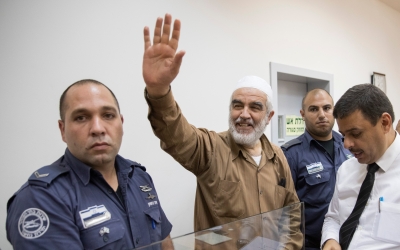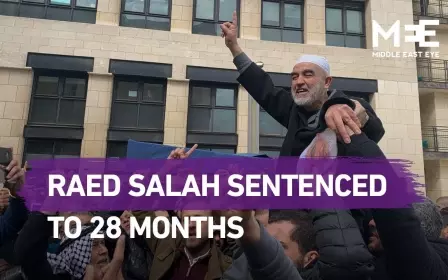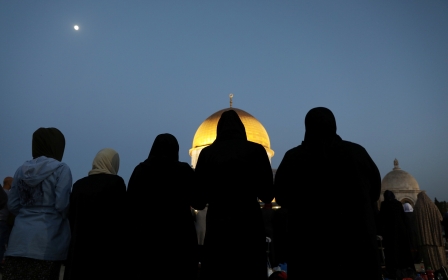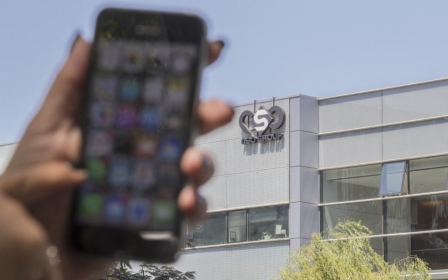Palestinian leader Raed Salah freed from Israeli prison after 17 months
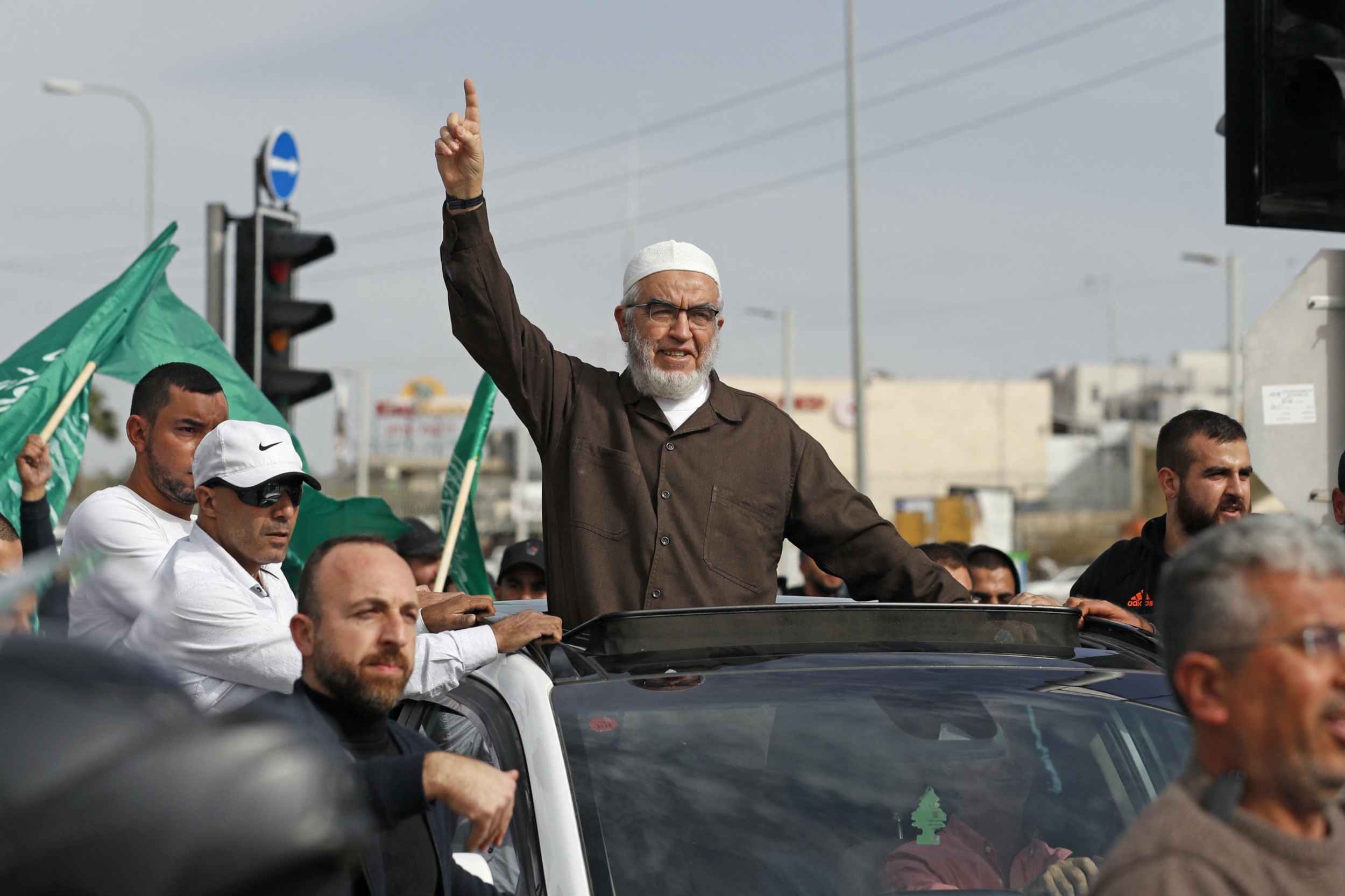
Prominent Palestinian religious and political figure Sheikh Raed Salah was released from Israel's Megiddo prison on Monday, after completing a 17-month sentence on incitement charges. Salah spent all of his sentence in solitary confinement.
Salah’s lawyers in September appealed for his release, arguing to the court that the detention has caused him physical and psychological harm.
New MEE newsletter: Jerusalem Dispatch
Sign up to get the latest insights and analysis on Israel-Palestine, alongside Turkey Unpacked and other MEE newsletters
The court rejected the appeal and ruled that Salah would stay in isolation until the end of his sentence.
Omar Khmaisa, one of Salah's lawyers, told Middle East Eye that the sheikh had suffered appalling conditions in solitary confinement and was not allowed to communicate with anyone.
“His isolation was total... He was detained alone in a separate section [of the prison], which was an unusual procedure," Khmaisa said.
The lawyer added that Salah intends to continue with his work for the Palestinian people.
Known for his defence of the Al-Aqsa Mosque compound and Palestinian rights, Salah was the leader of the northern branch of the Islamic Movement until it was banned by Israel in 2015.
A compass to al-Aqsa
Hundreds of residents and activists from different Palestinian cities and villages in Israel greeted Salah at the entrance to his hometown of Umm al-Fahm, a predominantly Palestinian village south of Haifa.
“The charges are religious and political pursuits… All I have ever endeavoured to say to the Muslim world, the Arab world, and the Palestinian people, is that our cause is one, embodied by Jerusalem and by al-Aqsa Mosque,” Sheikh Salah said in a statement outside his home.
In November 2019, Salah faced charges of “incitement to terrorism”, regarding speeches he made during protests in July 2017 against the installation of metal detectors at the outer gates of the al-Aqsa compound in occupied East Jerusalem.
The Israeli court sentenced him to 28 months in prison, including an 11-month suspended sentence for time served.
“I’ve known Sheikh Raed Salah since my childhood, for over 20 years, when I used to attend his weekly sessions at al-Aqsa… His resonating words have never left my mind,” Joumana Abu Arafa, a journalist from Jerusalem, told MEE.
“I, like many others, see Raed Salah as a man with a compass that has always pointed to al-Aqsa and attracted the free people of the world towards him,” added Abu Arafa, who has documented Israel’s violations against Salah for years.
Political intimidation
In his 2017 speech, Salah quoted verses from the Quran and the hadiths - a collection of the sayings of the Prophet Muhammad - as well as Palestinian folklore.
Sheikh Salah told Middle East Eye in an interview last year that his words were deliberately misconstrued in order to detain him.
'I, like many others, see Raed Salah as a man with a compass that has always pointed to al-Aqsa and attracted the free people of the world towards him'
- Joumana Abu Arafa, journalist
“The Israeli judiciary considered my use of this verse a call for incitement, violence and terrorism,” he said at the time.
“Dozens of errors were committed by the public prosecution and its witnesses in their explanations of parts of the Quran, Sunnah and the Arabic language, and the judge deliberately ignored them.”
The sheikh’s supporters maintain that the his arrest is tantamount to political intimidation intended to silence dissent and that his sermons are within the bounds of free speech.
Salah, who served a nine-month sentence on similar charges in 2017, told MEE in August 2020 that besides being imprisoned six times, he had been arrested too many times to count and endured days'-long interrogations.
Israel had also put him under house arrest for three years under difficult conditions, including not being allowed any visitors.
"I go to prison in complete contentedness, joy and assurance; standing by my values, regretting nothing. I know that as soon as I enter prison, they will start working to build a new case against me and launch a new round of investigations," Salah told MEE shortly before he went to prison for the seventh time.
Middle East Eye delivers independent and unrivalled coverage and analysis of the Middle East, North Africa and beyond. To learn more about republishing this content and the associated fees, please fill out this form. More about MEE can be found here.


